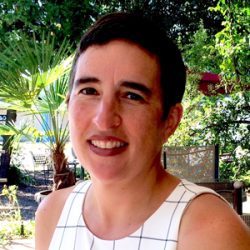Scholars at the Nov. 3 event will tell how they involve their subjects — farmworkers, parents, urban residents — in their social justice research.

When Allison De Marco came up with the idea for the original Race, Racism & Racial Equity Symposium, it was going to be an annual, in-person event. That was in early 2020. With the advent of the COVID-19 pandemic, the R3 symposium shifted to a virtual event.
And it began to grow. The next session, “Highlighting Participatory Justice Scholarship: Working to Advance Racial Equity” at noon Nov. 3, will be the seventh in the series.
“We really want to make sure that we’re highlighting all the amazing research that’s going on across campus that is working to advance racial equity and social justice in some way,” said De Marco, advanced research scientist at the Frank Porter Graham Child Development Institute and adjunct faculty member at the School of Social Work.
Online advantage

R3 is co-hosted by the University Office for Diversity and Inclusion, the Jordan Institute for Families and the School of Social Work‘s Office of Diversity, Equity and Inclusion.
“It’s been so well received by the University and the community that it’s helped us want to continue. The fact that we turned this virtual has also been a big reason for its success and for its continuation,” De Marco said.
Because the symposium is online, scholars have been able to talk about their research from as far away as Italy, and audience participation has broadened, too. “Our audience can join us from everywhere, too,” De Marco said. “It’s really important to us to be as inclusive as possible, and folks can join us from wherever. It also means it can be low cost, which also makes it more accessible and inclusive.”
Panelists for the event include:
- Ariana Ávila, doctoral student in the anthropology department in the College of Arts and Sciences. She is interested in food as a form of care among the farmworker community.
- Lupita Vazquez Reyes, community activist and cultural worker.
- Iheoma U. Iruka, research professor in the public policy department of the College of Arts and Sciences and founding director of the Equity Research Action Coalition at the FPG Institute. She will talk about her work with Black parents who experienced racism and discrimination during the COVID-19 pandemic.
- Andrew H. Whittemore, associate professor in the city and regional planning department in the College of Arts and Sciences. He will talk about how the election of officials of color, particularly in Durham, has led to advancing equity in that community.
Involving subjects in research
Especially appropriate for this session’s participatory justice theme, Ávila and Reyes, her community research partner, will be joining the conversation virtually from Immokalee, Florida, where they are working.
“I choose to define participatory justice as having folks who are closest to whatever the issue is under study involved in every way during the research process,” De Marco said. “And so I’m excited that our colleague, a doctoral student, is going to be joined by a community organizer among the farmworkers down there.”
Closer to home, “long-term racial equity and social justice warrior” Iruka will talk about the “exciting work she’s been doing during COVID to really center Black parent voices” in her research, De Marco said.
In a twist made possible by the Zoom space, Whittemore will record his remarks in advance instead of joining the panel for a live presentation. Catherine Fray, chair of the Carrboro Planning Board, will be online for the follow-up discussion.
As important as the presentations are the question-and-answer sessions that follow, De Marco said. These will be led by session moderator Travis Albritton, clinical associate professor and associate dean for diversity, equity and inclusion at the School of Social Work.
“We’ve always had really good thought-provoking questions,” De Marco said. “And we try to then send out a follow-up email with a list of action steps and follow up resources that folks might use to learn more.”
Register to attend “Highlighting Participatory Justice Scholarship” on Zoom.
by Susan Hudson, The Well
